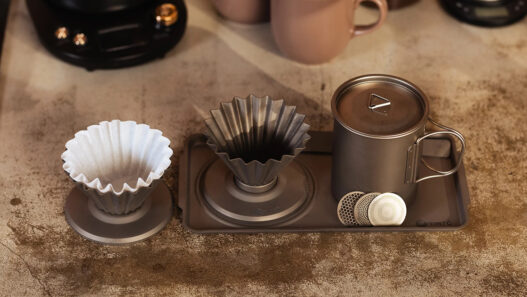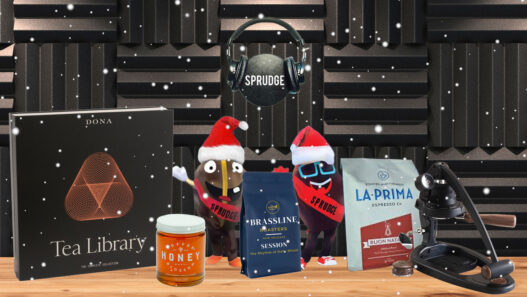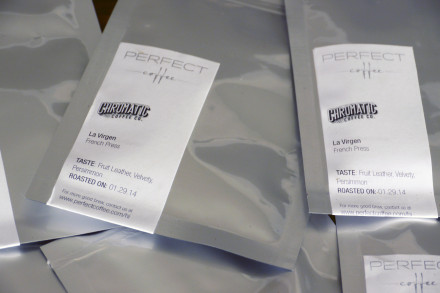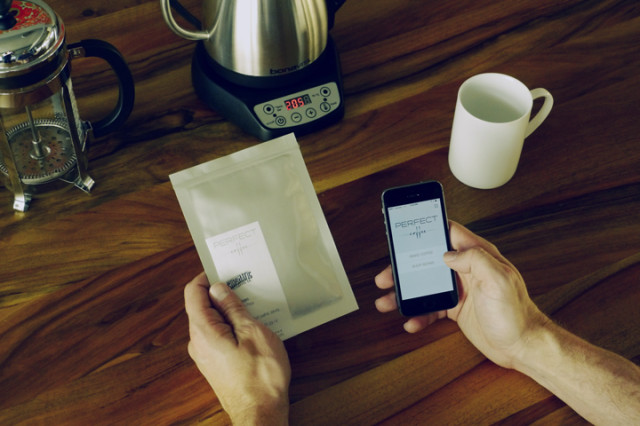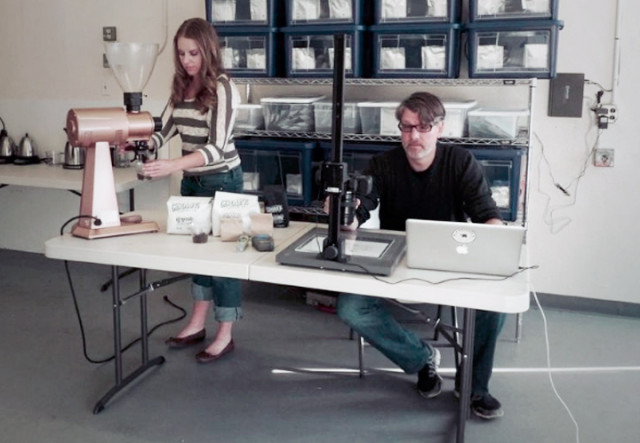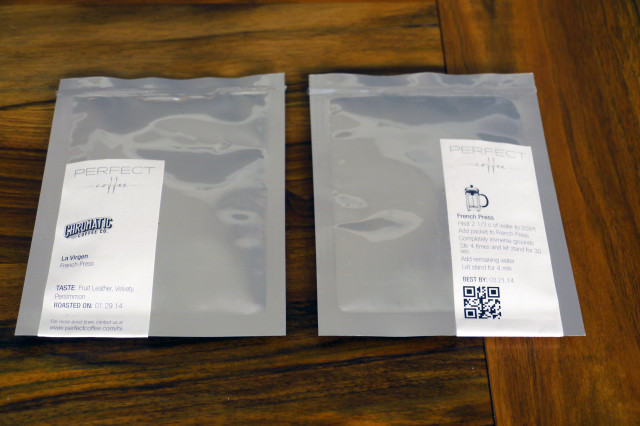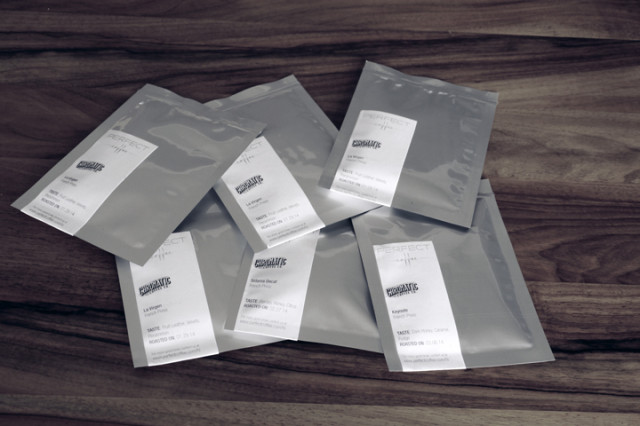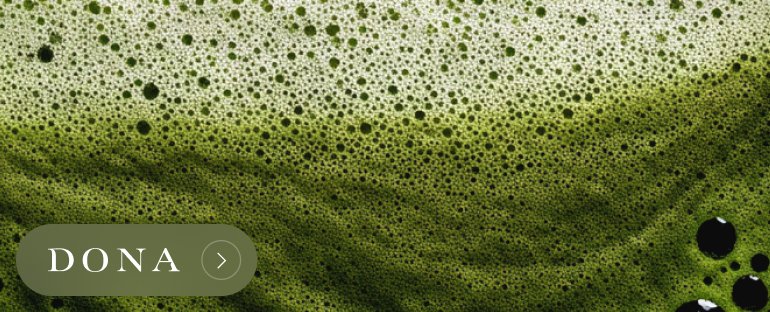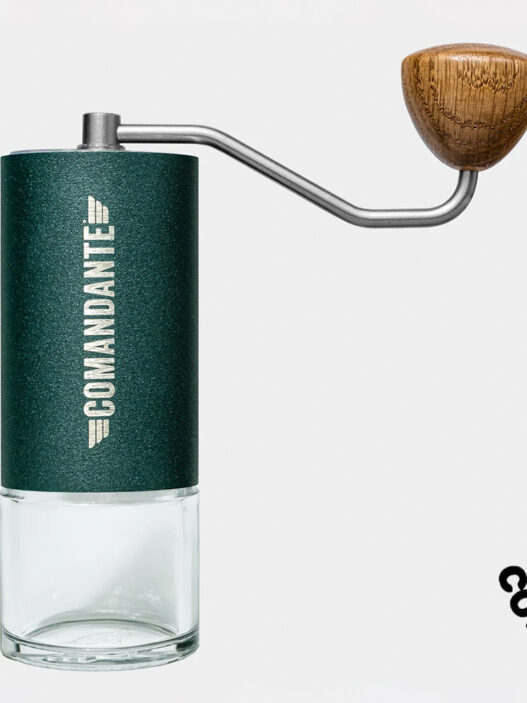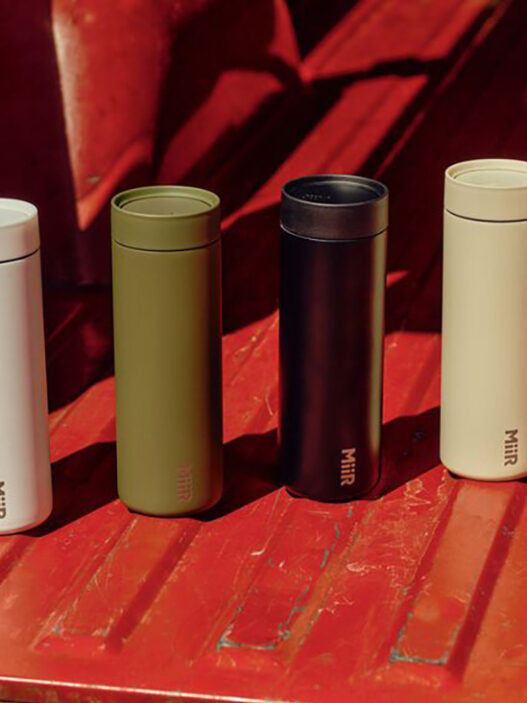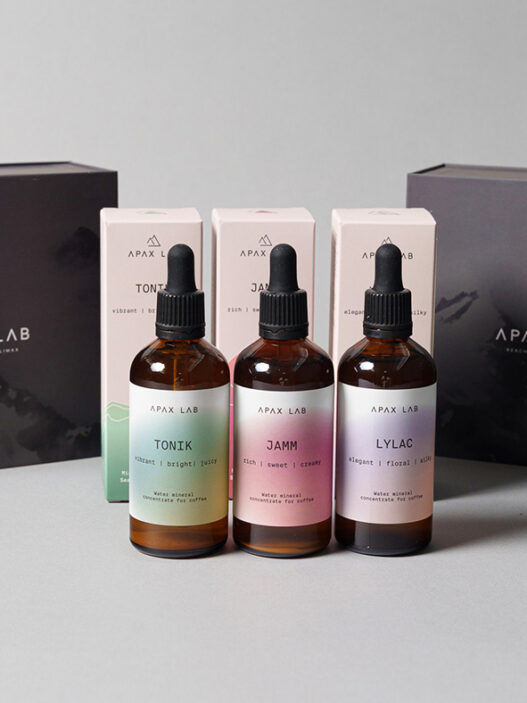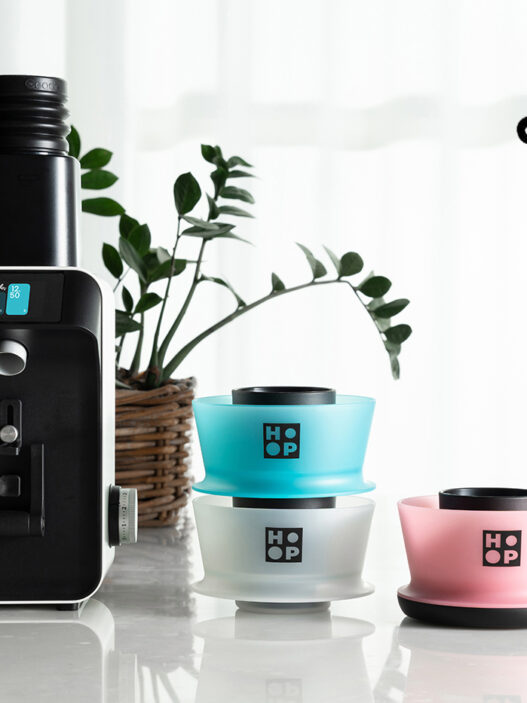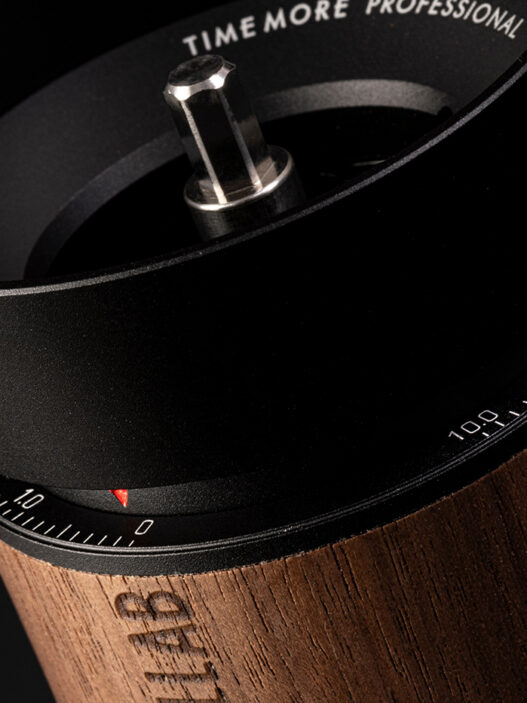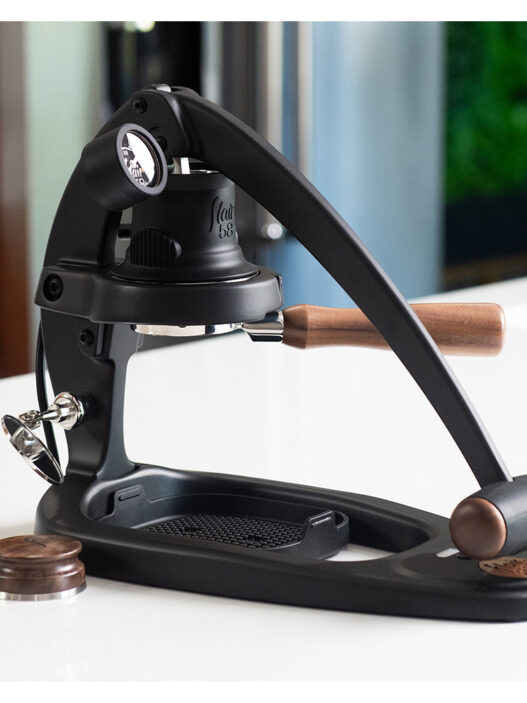What if pre-ground coffee didn’t have to suck?
Pre-ground single-serve coffee is one of the fastest growing sectors of the coffee market, but so far it has been associated with bland (at best) taste. Perfect Coffee, a new venture from Silicon Valley technologist Neil Day, and backed by Shasta Ventures, the firm behind successful tech startups like Nest, NextDoor, and Mint, aims to change all that.
Pop open one of their packets of pre-ground, pre-dosed coffee from some of the country’s top roasters, follow the dead-simple instructions using a French press, automatic brewer or Aeropress, and wind up with a fresh, delicious, expertly dialed cup, every time. No need for hours of experimentation or thousands of dollars of new equipment.
At the heart of the Perfect Coffee approach are two potentially revolutionary new technologies. First is a patented optical grind analysis system, which is part of an process that captures exactly how a coffee roaster’s quality control team brews the cup and replicates it for each coffee packet. Second is a patent-pending stabilization process, which ensures that the pre-ground coffee stays fresh for months.
Skeptical? We were skeptical, too. Then we met the founder, Neil Day, and heard the Perfect Coffee story. A story that includes extensive R&D testing with Chromatic Coffee and Blue Bottle Coffee, the pilot roasters in Perfect Coffee’s alpha phase.
“Like anyone else in the coffee industry, we heard pre-ground and said ‘no no no‘,” Director of Operations James Warren told Sprudge. “But we approached it with an open mind.” As for the results? “Everything that we’ve tasted from them so far has been really good,” said Patrick Martin, Chromatic’s production manager. “We’re able to dial in grind settings for each individual coffee, and then they take our samples and reproduce the grind. That’s one of the coolest parts that we’ve found: an amazing layer of detail that gets the coffee exactly the way that we brew it.”
Who is Perfect Coffee?
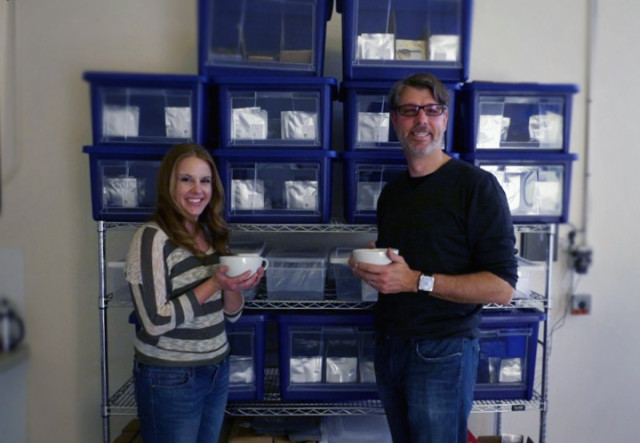
Neil Day’s CV narrates like a Valleywag long read. Originally from the Boston area, Day was interested in computer graphics and image processing from a young age, moving west in 1990 to take a job at Apple. From there he stood on the front lines of a wild era in tech: working as a consultant for various Silicon Valley properties until he helped start a company called HomeWarehouse.com in 1999. Day describes HomeWarehouse as “an e-commerce site before the first wave of e-commerce really took off.” In 2000 Walmart acquired HomeWarehouse.com, and Day went on to lead the engineering team that launched WalMart’s dot-com later that year.
From there his experience took him back to startup land, working on data management for retailers and consumer packaged goods. He started a company called MediaMaster, then worked as CTO for Sears, then took a position as Senior Vice President and CTO at Shutterfly. Altogether we’re talking around 25 years of experience in tech, with a focus on the emerging world of e-commerce.
We’ve explored the intersection of tech and coffee frequently in these pages, and in many ways, Neil Day is this phenomenon’s poster boy. He remembers an early “a-ha!” experience from college at the University of Rochester, rushing back to his dorm room with a pre-ground bag of Jamaica Blue Mountain. The results were delicious on day one, but terrible on day four, as pre-ground coffee is wont to do.
In the late 1990s and early 2000s, Mr. Day became a frequent visitor to Portland, Oregon, and an early devotee of Stumptown Coffee Roasters. He points to the roaster’s iconic original shop, on Southeast Division, as “the first time I realized you could do quality consistently and get so much out of coffee. Instead of great coffee being an accident that happened once in a blue moon, it was repeatable.” This launched Day on a path familiar to many coffee enthusiasts in the early 2000s: haunting Alt.Coffee on Usenet and message boards like Home-Barista.com and CoffeeGeek.
In 2009 he took his enthusiasm a step further—while living in Chicago after working for Sears, he “came to an arrangement” with the crew at Intelligentsia Coffee for him to take one of the company’s espresso training courses. His instructor? Charles Babinski, the recent Southwest Barista Champion who would later manage Intelligentsia’s Silver Lake coffee bar in Los Angeles before breaking off to start G&B Coffee with Kyle Glanville, another Intelligentsia alum and a US Barista Champion. Day calls his class with Babinski “a revelation,” and an important step on the path that would take him to Perfect Coffee.
“While I was going through the Intelligentsia class, I realized what [Charles Babinski] was describing was a chemical engineering problem. Assuming you have good beans and good water, you’re essentially managing grind, ratio of coffee to water, temperature, and in some cases, pressure. Those last ones are really easy to measure, but because there’s no way to measure grind, people just have to guess, and adjust the grind accordingly. I wondered if this would be a lot easier if there were a number on the bag that said ‘start with this, then tweak.'”
Developing the Perfect Coffee approach
Day began to research the changing coffee market. Though he saw a marked shift in home consumer tastes towards specialty coffee, “The fact is,” Day said, “it’s ridiculously hard for a ‘normal person’ to actually make good coffee at home.” The simple truth is, people want coffee at home that doesn’t require a tremendous amount of skill or time to prepare. K-Cups have generated billions (with a “b”) of dollars of revenue around this fact. For Day, the problem to solve was clear: “What if there were a way to take pre-calibrated, pre-measured coffee and package it in a way that was just as delicious as when you ground it?”
Day enlisted Jing Dong, a PhD candidate from Purdue University‘s Electronic Imaging System Laboratory, and the two put their heads together to build a technological answer built on optically measuring grind size. “First, we built a very accurate profile of the size and distribution of the grind. Then we developed a statistical model that helps us compare grind distribution [between different grinders]. The software is pretty easy to use–it takes like 3 minutes to run an analysis.” Both of these systems are patent-pending, their exact details carefully guarded.
R&D and quality control throughout the development of Perfect Coffee has happened with tremendous support and feedback from two primary roasters: Blue Bottle Coffee, based in Oakland, and Chromatic Coffee, based in San Jose. “What we really wanted to do was to go right to the source,” Day tell us. “Go to Chromatic, Blue Bottle, any number of folks–have them make the coffee the way they wanted it prepared, and then what we do is take that and make it accessible to people without all the knowledge or work.” For each coffee that Perfect Coffee offers, they have the roaster prepare it exactly how they want on their own equipment, and then use their analysis tech to capture every detail of the brew recipe. All of those parameters get translated into easy to follow brewing instructions, printed on each packet, and available via iPhone app complete with timers.
Of course recreating the brew parameters is only part of the problem. To address the freshness issues of pre-ground coffee, Day enlisted the help of Jessica Nelson, who studied Chemical Engineering at the University of Utah, and is Perfect Coffee’s first full-time employee. The system they developed “presses pause”, in Day’s words, on the degradation of coffee by creating a very high oxygen barrier. The technology is not specific to the bags being used–and Day hopes to find more recyclable options than their current #7 polyester and biaxial nylon packets. Coffee is received from the roaster, allowed to off-gas, ground on the uber-popular Mahlkönig EK43, and once packaged will keep “for months”, according to Day. “It’s hard for us to tell when they’re going to go bad, but we qualitatively find they’re best in the 6-8 week timeframe.” The point is not to keep the packets on hand forever, Day tells us. “We also agree with the point of view of the industry that it’s best to consume this stuff as quickly as possible, but our product is still undergoing testing to determine how long it stays fresh.”
The technologies at the heart of Perfect Coffee are potentially groundbreaking in their own right, but the true revolution could lie in the total vision of the experience. They are launching the alpha version of their web store with packets from Chromatic, Blue Bottle, and others, priced at around $2, alongside pre-approved equipment bundles–Bonavita automatic brewer, Aeropress, and French press to start–offered through a partnership with Clive Coffee. Day sees this an “enabling technology” for partnering with specialty coffee companies to reach a broader audience of customers “who like coffee at home and enjoy not only drinking but making coffee,” but may have been frustrated by the complexity of that endeavor. Day hopes that Perfect Coffee “encourages people to try a broad range of coffees, and see how people are doing things differently”—something that has so far been quite hard to do in a coffee world where you need to buy 12oz bags of coffee and spend time dialing in each one.
So what’s it all mean?
It might be hard to imagine a day when coffee is pre-packed, sealed, and portioned into individual servings that don’t suck. (People also had a hard time imagining a world where we’d all be walking around with computers in our pockets.) And moreover, there are some who question whether a bust for high-end coffee as a trend is fast-approaching. We think delicious coffee is like how tech or microbrewed beer was in the early 90s: still just a fraction of what it will someday become. If truly high quality coffee is going to become a mass market phenomenon, it’ll be with help from consumer-focused endeavours like Perfect Coffee.
For now, we’re offering readers an opportunity to be a part of Perfect Coffee’s alpha test. Selected participants will be part of an active feedback process. Expect regular samples and volunteer data-collection via the Perfect Coffee smartphone app, along with the sweet, pre-dosed satisfaction of being right on the shore as the pre-ground wave crashes on the banks of specialty coffee.
Click here to sign up for an exclusive alpha test of Perfect Coffee.
Sprudge.com Assistant Editor Alex Bernson contributed to this reporting.
All photos courtesy of Perfect Coffee.






